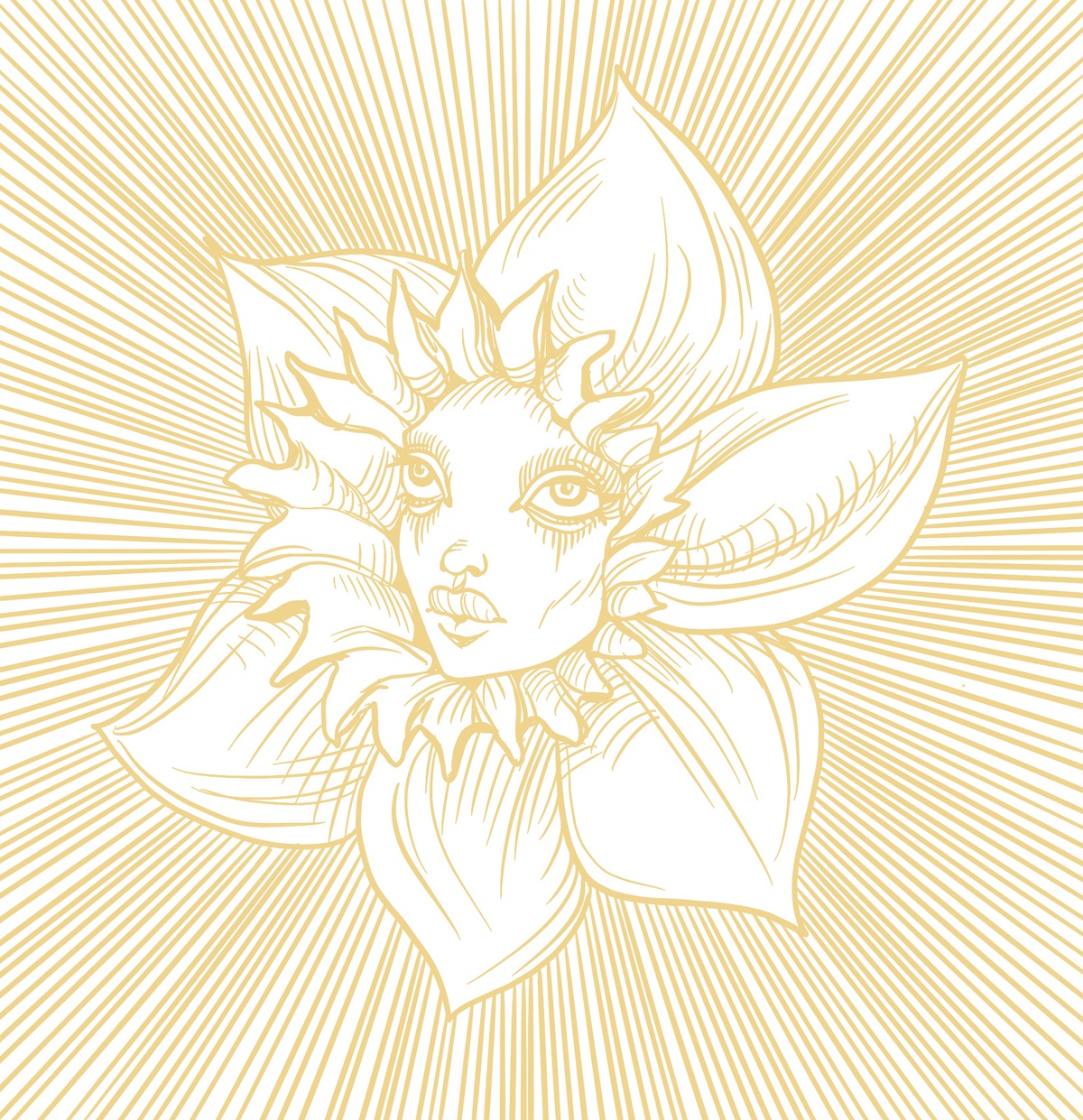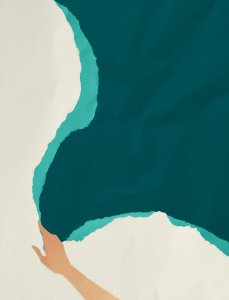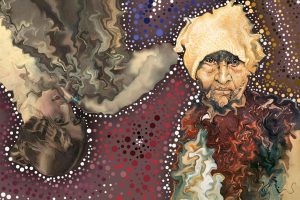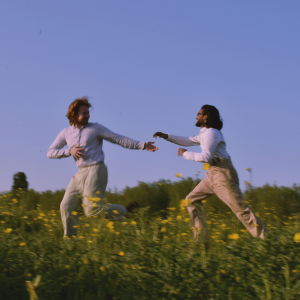
Daffodils
by Amal Hashmi | March 9, 2022
My mother chose clothes toned in pastel
and soft wool sheared of pink and brown.
Something wrong with her shalwar kameez- she could tell
her identity wasn’t for the 9-5, so she hid it in a button-down.
Professional, kempt, clean.
Adapting to an alien rhythm-
monotony isn’t so hard.
Just as a host of sweetly bowing daffodils
obediently rise when spring beckons,
waiting outside, together.
دیر تک ان کا انتظار رہا
Ignoring the pain of a bitten tongue Ami-ji caught English in her teeth.
With this she charmed open closed doors
and behind her locked out non-conformity.
Why should Wordsworth and Shakespeare be our models of verse
When we were denied the simple prose of Jalib, Iqbal, and Faiz first?
Our dialects, draped in swathes,
skillfully purposed as decorations
and not declarations.
لوگ ڈرتے ہے دشمنی سے ٹیڑھی
Silken until you touch,
harsh and solitary, but blissfully autonomous:
Yet, unprofessional and unkempt and unclean.
In a textbook with no pictures
the daffodil seemed beautiful,
until she saw ‘ten thousand at a glance’
and found there were ten thousand too many.
‘Continuous’, they were but bleached not ‘golden’,
a ‘never-ending’ swarm of attenuated meaning.
There are no daffodils in Sindh.
Only winter can tease their arrival
before the scorch of spring ambushes their foreign fragility.
The daffodils of Wordsworth’s lyrics were never here,
but still they are watered more than the jasmine chords which Farsi helped nourish.
There are not merely daffodils in England.
But there they cannot speak Urdu, Hindi, Arabic,
and do not care to know our poets
with their dead, unprofitable names.
They took everything but our words
and left behind the insult that we cannot use them.
They cultivate roses in weak shades of pigment but forget that their use outlives their looks-
how primitive to leach the scent from a rose!
They know of us, our appalling hues
but they do not want to know us,
especially when we do not want to know ourselves.
They could sing our perfumed songs
but we both close our mouths.
They limit their-our poetry
to the traditional, pale, familiar-
لیکن ہمارا نہیں، لیکن عجیب اور نا مانوس
Words by Amal Hashmi, Artwork by Tess Trop




